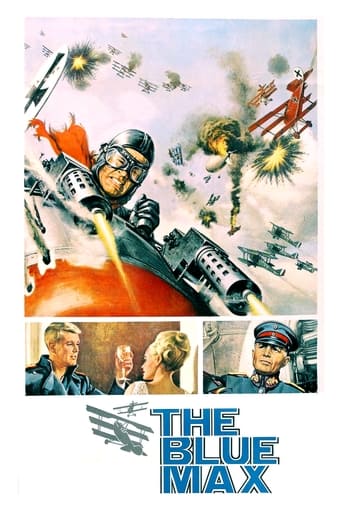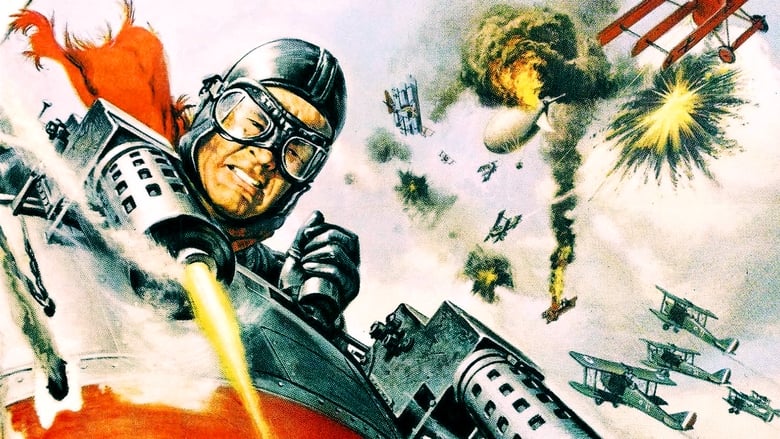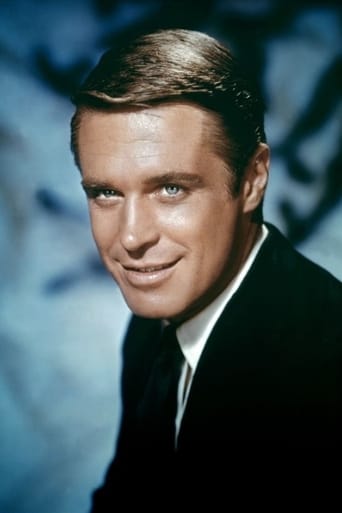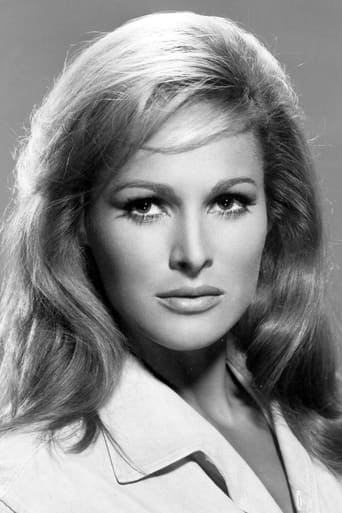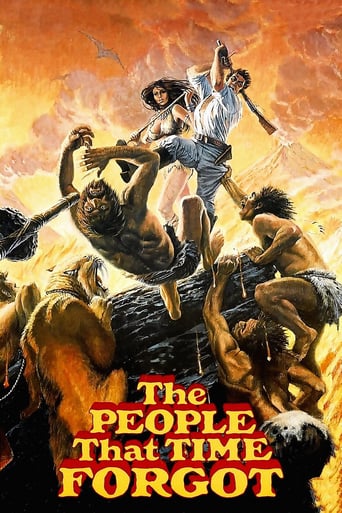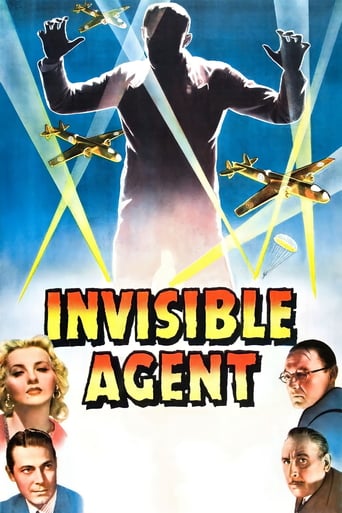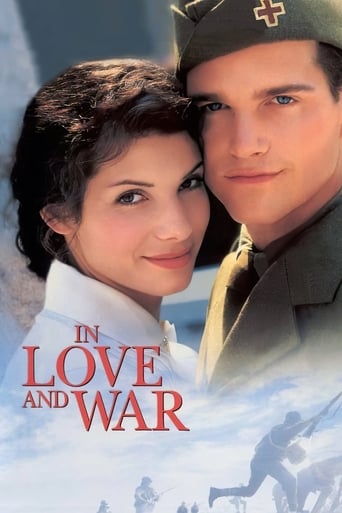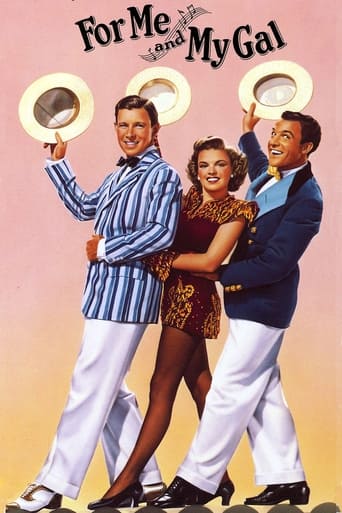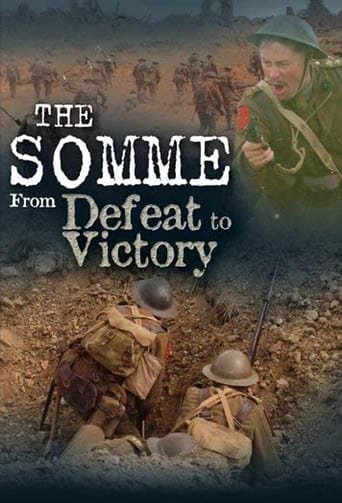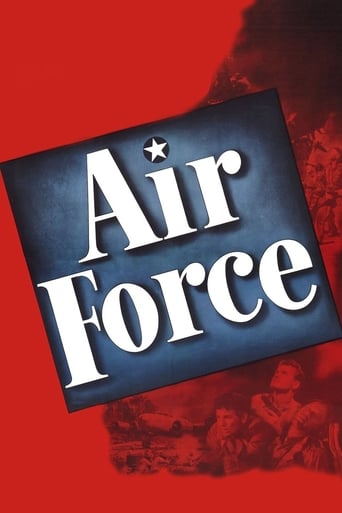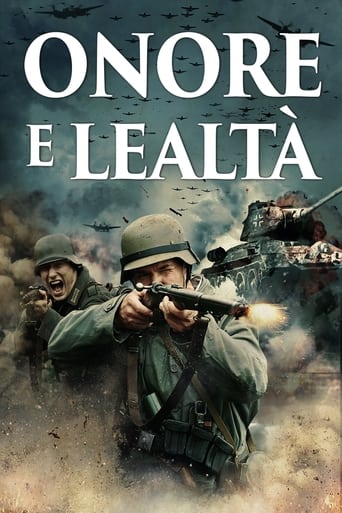The Blue Max (1966)
A young pilot in the German air force of 1918, disliked as lower-class and unchivalrous, tries ambitiously to earn the medal offered for 20 kills.
Watch Trailer
Cast
Similar titles
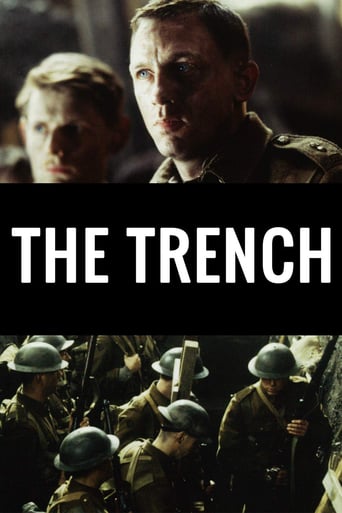
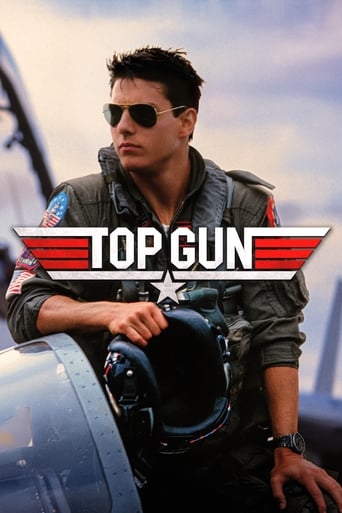
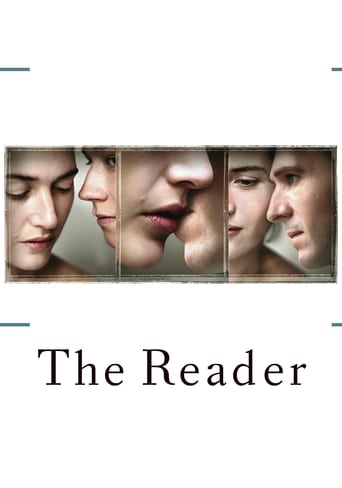
Reviews
Save your money for something good and enjoyable
One of my all time favorites.
Unshakable, witty and deeply felt, the film will be paying emotional dividends for a long, long time.
The film never slows down or bores, plunging from one harrowing sequence to the next.
1. George Peppard's American accent, it grates, I dislike cod German accents, (or any other language) in films and would prefer people speak in the actual language i.e. The Longest Day a film made around the same time. Other actors here have made the effort to at least sound German.2. Ursula Andress a completely superfluous addition to the story, 'We must have a love interest for the ladies', really? I think that is an insult to women that they only want to see a film if there is a love interest. Like a previous reviewer states most don't like war films so to add a love interest won't make them go and see it. So there are my reasons for deducting 2 stars otherwise this is a ten star film. The action sequences, especially the aerial battles are superb when you consider none of it is CGI. I saw this film in 1966 with my parents and I wanted to see it again immediately.To George Sickler I say you obviously totally missed the premise of the entire film. The Count wanted to use Stachel as propaganda showing that anyone of the lower classes could rise and be a hero/fighter ace. When he discovers that Stachel cheated to get the Blue Max he knows it would be damaging to the image of the other fighter aces. So rather than expose him he allowed the cheat to die a hero, wonderful PR whilst removing a lover from his wife at the same time.I am just watching it again on Sky Classics, wonderful stuff.
In days of yore, "roadshow" films (ie, "Lawrence of Arabia," "Dr Zhivago," "My Fair Lady," "Blue Max") were long, expensive, expansive, and broke for intermissions. It was an event for a couple to dress up to go to the theatre to watch these films, something looked forward to. When I first saw "The Blue Max" it made me want more than anything to fly in a biplane; although I have been flying for awhile now, I have still not had that pleasure.But I did recently have the pleasure of re-viewing this film; it is Peppard's finest performance, and Mason, Andress and the rest are just as good. The flying scenes will enthrall, but the one drawback to the film is that one gets the impression that the romance story between Peppard and Ursula take up almost an equal amount of time -- all for a tepid pay-off of having Ursula cause a final misfortune out of her sense of pride.The photography is magnificent, the direction is active, the shots are well-planned, and the fight choreography is exciting.IF you've got the (almost) three hours and enjoy war films built on character development more than battle scenes, this is a film you will very much enjoy.
This is an interesting story revolving around the heavier-than-aircraft of World War I (about 100 years ago). But, this movie is really about more than just WW I pilots and aircraft. It is a drama about German classicism (during the period) and the difference between how the upper class and the lower class viewed their roles as war pilots. The movie opens in 1916 with Bruno Stachel (George Peppard) trapped in German trenches at the Western Front. We watch him as he marvels at the aircraft flying overhead, free to maneuver at will. After he is promoted and takes his pilot training, in 1918 he reports to the Air Corps only to find that he is not from the right social class: -------------------------------"His colleagues aren't happy with him, not only because he isn't an aristocrat like they are, but also because he's extremely ambitious. He will do anything to win him his country's most honored medal--The Blue Max. But to win The Blue Max, he'll have to shoot down 20 enemy aircraft, which will all have to be confirmed by his comrades, without getting killed himself. And while being hated by his fellow pilots, he's seen as the people's hero and perfect propaganda material, by the general, and as the ideal lust object, by the general's wife..."The Blue Max" shows very well how the pilots during WWI were almost always noblemen (I guess the most famous one of them all was Manfred Freiherr von Richthofen, better known as the Red Barron), who considered the concept of an honorable death at the hands of a "worthy" opponent still as one of the most important things during their fights. Even at the end of the war in 1918, while on the ground troops had been anonymously slaughtered by the thousands with machine guns and gas, they still considered chivalry as one of the highest goods."-- Philip Van der Veken from Tessenderlo, Belgium 13 May 2005.------------------------------ I think that some of the photography, here, is remarkable, but the story with it intrigue of people using people for their own selfish gains is also quite good. In other words, the movie works on several levels. This is one of those movies that has a great ending. So, if you get into it, don't leave your seat until the final fad out comes....
I've seen most of the notable war flicks and "The Blue Max" from 1966 is one of my all-time favorites (other favorites include the original "Apocalypse Now," "Where Eagles Dare," "Platoon" and "The Eagle has Landed").THE PLOT: During World War I a low-class German soldier, Bruno Stachel (George Peppard), transfers from the muddy trenches to the aristocratic air officer corps. Stachel naturally becomes a bit of a fish out of water with his new higher class comrades-in-arms, but this doesn't bother him as Stachel is interested in only one thing -- gunning down twenty enemy planes to get the coveted Blue Max, Germany's Meddle of Honor. In fact, he's so focused on this goal that he'll do anything to achieve it, honorably or dishonorably. His success as a driven fighter pilot prompts his commanding officer to use him as a propaganda tool, a hero from the lower classes who is "common as dirt." Critics of the film complain that Stachel is unlikable and therefore not a very good hero to root for. It is true that Stachel doesn't seem very friendly, but how friendly would you be toward high-class "gentleman" after years of brutal trench warfare? It's also true that he's selfishly ambitious and rebels against the team spirit of the squadron, not to mention direct orders. In addition he's an alcoholic and an adulterer. But, as the German general played by James Mason states, he's brave ruthless and driven -- precisely what Germany needs at the closing months of the war. Stachel isn't a hero, he's an anti-hero.Let's face it, real life offers up few perfect heroes and "The Blue Max" is a powerfully realistic portrayal of air combat during World War I. The story should simply be digested as is without looking for a hero.One of the best sequences takes place in the first half of the picture: Stachel justly feels he is robbed of a "kill" because the plane he shot down couldn't officially be confirmed (even after he forces a corporal to escort him around the rainy countryside for half a day to find the downed plane). Later, while escorting an enemy plane back to home base he shoots the plane down when a wounded tailgunner awakes and instinctively starts shooting. Stachel lands and runs over to the downed plane along with numerous other Germans; he cuts the emblem from the plane and bitterly throws it at the feet of his superiors adamantly stating, "Confirmed." This is one of the most powerful scenes in filmmaking history.The film is universally praised for its scenic and compelling air combat sequences, but some people inexplicably criticize the drama on the ground. Personally, I find the ground story equally as interesting as the air fighting, maybe even more so. Besides, how interesting is mindless non-stop action without the contrast of interesting character-defining drama?Other highlights include a brief appearance of the Red Baron, the ravishing Ursula Undress -- I'm sorry, I mean Andress -- as the general's adulterous wife and an excellent score by (who else?) Jerry Goldsmith.The cinematography and Irish locations are excellent. The overall look of the film is cold, dark, cloudy and wet. In other words, kind of depressing. But, of course, World War I was no happy day at the beach!BOTTOM LINE: "The Blue Max" is a film of epic scope and certainly one of the greatest war films ever made. It may be from 1966 but it's not dated one bit. Highly recommended.
